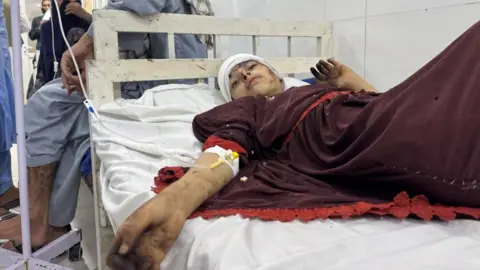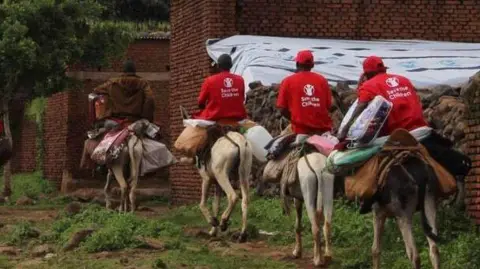More than 800 people have been killed and nearly 3,000 injured after a magnitude-six earthquake struck eastern Afghanistan just before midnight on Sunday, as reported by the United Nations humanitarian agency.
Most of the deaths are concentrated in Kunar province, with officials warning that the toll could rise significantly as entire villages have been flattened by the quake. The scale of devastation is unimaginable, stated a Taliban official.
This disaster comes as Afghanistan is already facing severe droughts and food crises, exacerbated by significant cuts to humanitarian aid. The World Food Programme has indicated that a crisis of hunger is unprecedented in the region.
The earthquake struck at 23:47 local time on Sunday (19:47 GMT), approximately 27 km east of Jalalabad, Afghanistan's fifth-largest city located in Nangarhar province.
One resident, Faridullah Fazli, described being jolted awake by the tremor: There was a very strong earthquake, accompanied by terrifying sounds. We didn't sleep until morning. Asadabad, Fazli's town along the Kunar river, saw drastic increases in injured citizens as they rushed to local clinics for medical assistance.
In the aftermath, residents reported villages in the Nurgal region suffering pronounced destruction, with reports of 95% of one village levelled and numerous households facing multiple injuries.
The most affected area, Kunar, is characterized by its rugged terrain and limited agricultural land. Mud tracks serve as the main roads, and homes are primarily constructed from clay and stones, making rescue and recovery efforts incredibly challenging.
Rescue operations have been severely hindered due to blocked roads and treacherous terrain. Initially, efforts to reach the impacted areas could only commence by air, with helicopters managing to navigate clear skies after the initial quake. Taliban officials have emphasized that the primary focus now is on providing aid to the injured, often trapped under rubble.
Hospitals, already overstrained before the disaster, reported inundated patient intake following the earthquake. In Jalalabad, the main hospital has witnessed chaos with thousands seeking treatment for injuries.
The Taliban government has made an urgent appeal for humanitarian support to assist those affected by the earthquake. This seismic event, unfortunately, highlights Afghanistan's position on tectonic fault lines, having been previously impacted by significant earthquakes in nearby provinces.
With the quake occurring at a shallow depth of just 8 km, it triggered tremors felt in Kabul and even across borders in Pakistan. As Afghanistan grapples with the ongoing humanitarian fallout from this natural disaster, the necessity for international aid and ground support remains crucial.



















